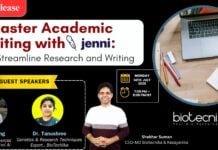Microsoft signs a contract with start up Twist Bioscience to store World’s data in DNA
A San Francisco start up Twist Bioscience which makes synthetic, storage-ready DNA struck a contract with Microsoft and the University of Washington to encode vast amounts of information on synthetic genes.
Twist Bioscience recently acquired the Israel-based Genome Compiler Corporation and announced a teeny tiny funding round of $2.6 million this month – an odd contrast to the $81 million raised earlier in January to build out its synthetic DNA manufacturing platform.
This phase in the startup’s continued growth is still in its infancy – Twist’s researchers are still testing out the idea of data storage in DNA and a commercially viable product isn’t likely to be ready for a couple of years – but early tests indicate the idea is possible.
“The initial test phase with Twist demonstrated that we could encode and recover 100 percent of the digital data from synthetic DNA,” Microsoft researcher Doug Carmean said.
It seems that Microsoft is exploring the idea of using DNA molecules as a way to store massive amounts of data. Unlike hard drives, Blu-Ray discs, or pretty much any current storage technology, DNA stays intact
and readable for as long as 1,000 to 10,000 years.Better yet, Microsoft Research estimates that one cubic millimeter of DNA can store one exabyte, or one billion gigabytes of data. That’s important as the rise of the smartphone era means we’re generating more photos, video, text, and audio than ever before, making this an important research area for Microsoft.
“As our digital data continues to expand exponentially, we need new methods for long-term, secure data storage,” says Microsoft Research’s Doug Carmean in the press release.
The technology is a long way away from ready for commercial products, so you won’t see a DNA-powered smartphone any time soon. But Microsoft says that the potential is clearly there, and that a test done with Twist Bio last fall went well, with 100% of its data encoded and later retrieved into the test DNA.
Twist Bioscience, says in that press release that costs for this technology are getting lower all the time. That means we’re not that far away from an era where long-term data storage isn’t done on discs or drives, but in strands of customized organic material which is good, because current technology is struggling to keep pace.
To pursue that goal, Twist has raised $131 million from investors including Boris Nikolic, one of Bill Gates’ chief science advisors at the Bill and Melinda Gates Foundation.
And while preserved flies in amber don’t actually contain intact DNA like in “Jurassic Park,” – fossilized tree is great for preserving insect skeletons, but not their DNA – it’s still a useful way to think about the potential of the technology: Consider the dinosaur DNA that they were able to recover in the movie as a USB flash drive from 65.5 million years ago. Life, like technology, finds a way.






























